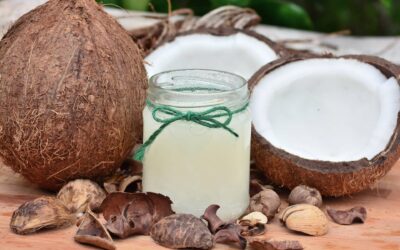Brief Overview of the Philippines Coconut Oil Industry
The Philippines has always been at the top list of the major exporters of coconut oil in the world as the coconut remains an important crop and the Philippines major export (1). In the Philippines, there exist over 3.5 million coconut farmers and an estimated 25 million Filipinos depend on the coconut industry either directly or indirectly.
The Davao region is considered as one of the top coconut producers in the Philippines with 14.4% of total production, followed by the Zamboanga Peninsula (13.6%) and Northern Mindanao (12.9%) respectively (2).
As commonly referred to as the “tree of life” with its scientific name “Cocos Nucifera,” the coconut, has been truly nutritious and contributed greatly to the health and well-being of the people in the Philippines in particular and the Asia Pacific region in general. The “copra” which is commonly referred to as the “white meat” found in the interior of the coconut fruit is a healthy source of coconut oil, including other nutritious products like coconut cream, milk, and juice.
With recent science, more has been developed or studied on the health benefits of coconut and coconut oil. Besides, there have been a growing consciousness of what people consume and many today are shifting towards an organic, natural, and healthy way of life. With the coconut oil and the Philippines with its huge presence and involvement in the coconut oil industry, many nations around the world depend on the Philippines for the importation of coconut oil.
Philippines Export of Coconut Oil as of 2020 (Refined Coconut Oil and its fractions)
As of 2020, the Philippines showed up as the third major exporter of coconut oil in the world and was able to control a global market share of 20.2% and exported over 222 thousand tons of coconut oil to the world with an export value of over $243 million USD.
Compared to the previous year of 2019, the Philippines was the number one exporter of coconut oil to the world with a market share of 24.9%, exporting over 332 thousand tons of coconut oil with a market export value of over $290 million USD.
Even with an increase in price from $871.2 in 2019 to $1,098 per ton in 2020, the Philippines experienced a remarkable drop in global market export of about 4.8%. This can be due to the drop in the quantity exported led by increased local demand.
These facts are based on the export of coconut oil and its fractions, whether or not refined, but not chemically modified and excluding crude coconut oil.
Countries that Import Coconut Oil from the Philippines as of 2020
Where does the Philippines export coconut oil?
The Philippines exports its refined coconut oil and its fractions to the following markets; United States, China, Japan, Korea Republic, Sri Lanka, Netherlands, Canada, Malaysia, Turkey, and Singapore. This is ranked in order of value exported as of 2020.
| Importers | Value Imported in 2020 (USD thousand) | Trade balance in 2020 (USD thousand) | Share in Philippines Export (%) | Quantity Imported in 2020 | Quantity Unit | Annual Growth in Value 2019-2020 (%) | Ranking in World's Import | Share in world Imports (%) |
| United States | 109,098 | 109,096 | 44.7 | 91,769 | Tons | -44 | 1 | 28 |
| China | 51,906 | 51,696 | 21.3 | 56,041 | Tons | 29 | 2 | 11.4 |
| Japan | 29,245 | 29,245 | 12 | 27,951 | Tons | 25 | 7 | 3.2 |
| Korea Republic | 14,360 | 14,360 | 5.9 | 14,178 | Tons | 8,840 | 4 | 3.8 |
| Sri Lanka | 7,744 | 7,744 | 3.2 | 7,715 | Tons | 3,897 | 6 | 3.6 |
| Netherlands | 6,447 | 6,447 | 2.6 | 5,441 | Tons | -64 | 16 | 1.5 |
| Canada | 4,413 | 4,413 | 1.8 | 1,547 | Tons | 25 | 9 | 2.8 |
| Malaysia | 3,776 | 3,557 | 1.5 | 3,940 | Tons | 557 | 19 | 1.3 |
| Turkey | 2,835 | 2,835 | 1.2 | 2,743 | Tons | NA | 15 | 1.6 |
| Singapore | 2,354 | 2,354 | 1 | 1,740 | Tons | 937 | 14 | 1.9 |
The United States
The United States is the top importer of coconut oil in the world with a global import share value of 28%. The United States imported over 91 thousand tons of coconut oil from the Philippines with an Import value of over $109 million USD. The United States holds a market share of 44.7% of the Philippines ‘ export of coconut oil.
China
China is the second-largest importer of coconut oil in the world controlling over 11.4% share in global imports of coconut oil. China imports over 56 thousand tons of coconut oil from the Philippines and holds a 21.3% share in the Philippines’ export of coconut oil with a market export value of over $51 million USD. The annual growth in value of China’s import of coconut oil from the Philippines by 2019-2020 has increased by 29%.
Japan
Japan is known to be the 7th largest importer of coconut oil in the world with a global import share value of 3.2% also imports the majority of its coconut oil from the Philippines. Actually, between 2019-2020, the annual growth in value of Japan’s import of coconut oil increased by 25%. Japan imports over 27 thousand tons of coconut oil from the Philippines with a market import value of over $29 million USD. Japan holds a 12% share in the Philippines ‘ export of coconut oil.
Republic of Korea
The Republic of Korea is the 4th largest importer of coconut oil in the world with a 3.8% share in global imports. The Korean Republic has experienced tremendous growth in the import of coconut oil from the Philippines. Between 2019-2020, the annual value growth was 8,840%. This growth can be attributed to the growing cosmetic market in the Republic of Korea. The Republic of Korea imports over 14 thousand tons of coconut oil from the Philippines with a market value of over $14 million USD and holds a 5.9% share in the Philippines’ export of coconut oil.
Sri Lanka
Sri Lanka is the 6th largest importer of coconut oil in the World and the 5th largest importer from the Philippines. Sri Lanka imported over 7 thousand tons of coconut oil from the Philippines and with an import value of over $7 million USD. As of 2020, Sri Lanka holds a 3.2% share of the Philippines’ export of coconut oil with an annual growth in value between 2019-2020 of about 3,897%.
Netherlands
The Netherlands is the 16th largest importer of coconut oil in the world and the 6th largest importer from the Philippines. The Netherlands controls a 2.6% share in the Philippines’ export of coconut oil and imported over 5 thousand tons with an import market value of over $6 million USD.
Canada
Canada comes in as the 9th largest importer of coconut oil in the world and the 7th largest importer from the Philippines. Canada imported about 1,547 tons of coconut oil from the Philippines as of 2020 with a market value of over $4 million USD. Canada controls a 1.8% export market share of the Philippines’ coconut oil.
Malaysia
Malaysia is a major exporter of coconut oil and still ranked as the 19th largest importer of coconut oil in the world as of 2020. Malaysia is the 8th largest importer of Philippines coconut oil and imports over 3 thousand tons of coconut oil and holds a 1.5% share of Philippines export with a market value of over $3 million USD. Malaysia experienced a remarkable 557% annual growth in value between 2019-2020.
Turkey
Turkey is the 15th largest importer of coconut oil in the world and the 9th largest from the Philippines. Turkey Imports over 2 thousand tons of coconut oil from the Philippines with a market value of over $2 million USD and holds a 1.2% share of Philippines export.
Singapore
Singapore is known to be the 14th largest importer of coconut oil in the world and the 10th largest for the Philippines. Singapore imports about 1,740 tons of coconut oil from the Philippines with an import market value of over $2.3 Million USD. Singapore holds a 1% share of the Philippines export of coconut oil with an annual growth in value between 2019 and 2020 of 937%.
It is worth noting that the above analysis is based on the export of coconut oil and its fractions, whether or not refined, but not chemically modified, and excluding crude coconut oil.
Which Other Countries Export Coconut Oil
The top exporters of coconut oil in the world as of 2020 include; Indonesia, Netherlands, Philippines, Malaysia, United States, India, Vietnam, Canada, Germany, and Italy respectively.




